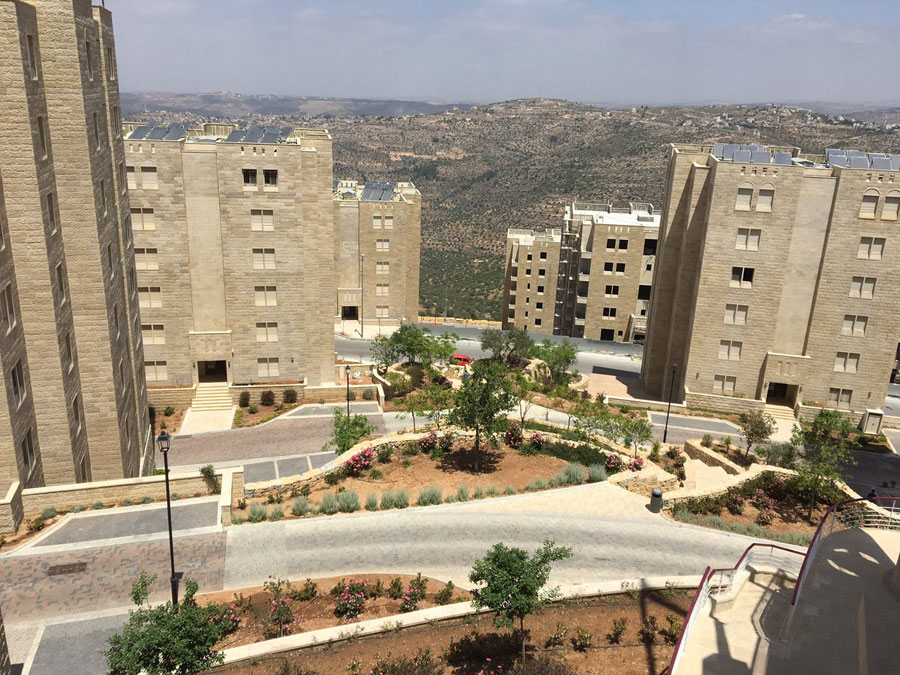Australia/Israel Review
The Last Word: A tale of two cities – and a village
Jun 28, 2018 | Jeremy Jones

Upon our recent arrival in Ramallah we, six Australians and a New Zealander, immediately were taken on a guided visit through a refugee camp.
We saw structures that spoke of a longevity, even permanence, which one does not immediately associate with refugees and which is essentially unique to the experience of those under the care of the United Nations Relief and Works Agency for Palestine (UNRWA).
In a number of places, an expert eye was required to distinguish where the camp ended and the city began, with recent-model cars in the streets, civil services and political and social activity in clear evidence.
Everywhere, posters of “martyrs” – nearly always people who died while attempting to kill Israeli civilians – were on display, and in conversation in Ramallah we were pounded with claims against Israel (and occasionally the USA) which were rationalisations for violence and recalcitrance.
Palestinian activist Dr. Mustapha Barghouti, perhaps unaware that people have the capacity to fact check and make their own observations, used clichés, dubious political analyses and colourful fabrications to argue that Palestinians are righteous victims, and that it is the responsibility of everyone else to give them the power to be victimisers.
Which is why it is always informative to visit the new, planned city of Rawabi when in the neighbourhood.
Rawabi is a private development which its planners and investors hope, in the future, will be the residence of choice for Palestinians frustrated with their Authority for trying to stop them aspiring to a decent quality of life.
Thoughtfully designed residential, recreational and retail areas are supplemented by a high-tech hub and highly-desired educational institutions.
This was my third annual visit – and the development has been quite remarkable.
The briefings we received there did not depart from a script which left no doubt that Israel was always to be challenged rather than trusted, but to the trained ear there appeared to be an underlying desire to end the conflict and get on with developing a society and community in which one could realistically aspire to a comfortable bourgeois existence.
Within Israel, I spent some time in a village which is as old as Rawabi is new.
Khawaled is a village, home to around 700 Bedouins – a large family from the one tribe.
It was permanently settled prior to the development of modern Israel, and when the first kibbutzim were being established the Bedouins from Syria and the Jews from Europe began an enduring friendship arising from co-operation and a mutual desire for coexistence.
The villagers have been involved in long campaigns to gain the facilities to which they are entitled as Israeli citizens, while simultaneously engaging in all aspects of Israeli society – including military and diplomatic service.
Determined to maintain the Bedouin nature of the village, the residents have opposed attempts to make it a place in which anyone can live, while welcoming visitors.
Largely due to the efforts of Israeli diplomat Ishmael Khaldi, Khawaled’s efforts to improve infrastructure and connections with the rest of Israel have become well-known to, and well-supported by, people in many countries who care about basic fairness.
My visit was during Eid El-Fitr, the festival straight after Ramadan, and I joined the villagers in a reception and meeting with the Mayor of the Zevulun Regional Council (which includes a mix of communities such as kibbutzim, moshavim, Muslim villages and small cities).
It was a display of local democracy at its best, as enthusiasm to ensure the Mayor and councillors heard, and listened to, their grievances contested with the impetus to celebrate a happy time on the religious calendar.
In Rawabi and in Khawaled, the complaints of problems with planning authorities, difficulties in facilitating some basic services and questions regarding the nature of Palestinian and Israeli society respectively were overwhelmed by a belief that a better future is possible. For residents of the city-to-be, achieving this requires continuing personal responsibility and not adopting a mentality of righteous victimhood.
Tags: Israel, Palestinians






